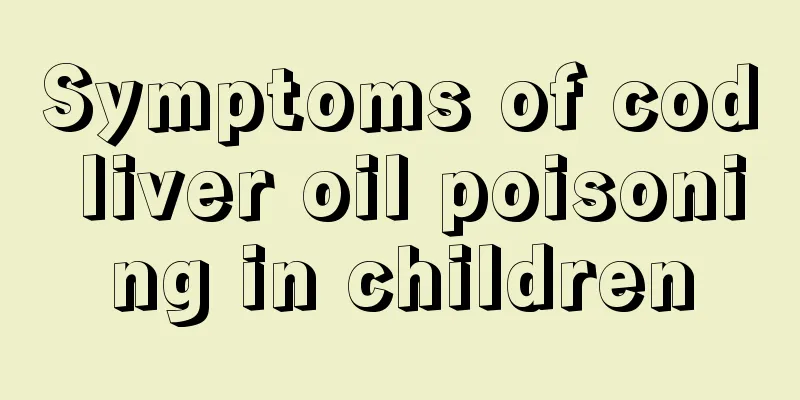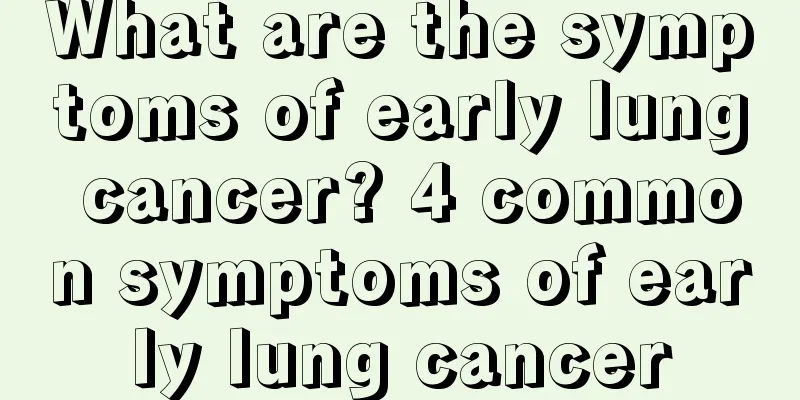How to detect early nasopharyngeal cancer and how to prevent it

|
How to detect early stage nasopharyngeal cancer? How to prevent it? 1. Nasal congestion is an early manifestation of nasopharyngeal carcinoma, mostly unilateral. Nasal congestion has nothing to do with body position and is persistent and progressive. Using nasal mucosal vasoconstrictors such as Dibijing for nasal congestion does not relieve it. When the tumor grows, nasal congestion will occur on both sides. Bleeding is a common manifestation of nasopharyngeal carcinoma in the early stage. It manifests as blood in the nasal discharge or blood in the sputum after suctioning the nose. After getting up in the morning, bloody nasal discharge is often sucked out of the mouth. The amount of blood is not much, and it is often ignored by patients or regarded as hemoptysis. 2. In the early stage, the tumor destroys the skull base, involving the trigeminal nerve, abducens nerve, etc., causing pain in the top of the head, occipital region, and temporal region, as well as facial numbness, diplopia, and inability to spread to the affected eye. As the early symptoms are complex, it is easy to misdiagnose or miss the diagnosis, so you should be alert. 3. In the following cases, we should be alert to the possibility of nasopharyngeal cancer and see a doctor and check as soon as possible: contractile bloody runny nose; swollen cervical lymph nodes, facial numbness, double vision, etc.; tinnitus, stuffy ears, hearing loss; headache, especially persistent migraine. Like other tumors, the onset of nasopharyngeal carcinoma may be the result of the combined effects of multiple factors on susceptible populations. Ways to prevent the disease are as follows: 1. Strengthen exercise, improve physical fitness, and reduce the chance of infection with EB virus. The specific method is: insist on washing your face with cold water to prevent colds. Actively treat acute rhinitis, nasal adjacent organ diseases and systemic diseases to prevent the induction of this disease. Avoid staying in an environment with toxic or irritating gases and dust for a long time. 2. Do not blow your nose hard to prevent turbidity from flowing into your ears. Vasoconstrictor nasal drops, such as ephedrine, nasal and eye cleaning, should not be used for a long time to avoid drug-dependent rhinitis. 3. Paying attention to dental care can prevent nasopharyngeal cancer. Patients with chronic sinusitis should often clear nasal congestion and pay attention to the method of blowing their nose to prevent mucus from entering the middle ear cavity and causing otitis media. Traditional Chinese medicine usually uses clearing heat and removing phlegm, regulating the lungs, spleen, and kidneys as the main treatment methods. |
<<: What does it mean to have chemotherapy first and then surgery for cervical cancer
>>: Causes and symptoms of nasopharyngeal cancer
Recommend
Will eating avocado at night make you fat?
Avocado has a relatively high nutritional value. ...
What are the common hazards of hamartoma
Any disease will threaten human health. It will n...
Which is better, brisk walking or jogging
Brisk walking and jogging are both forms of exerc...
What medicine is good for colitis? Is Chinese medicine good for treatment?
Colitis is often chronic, with typical symptoms i...
How to make your own intestinal cleansing and detoxifying tea
Bowel cleansing and detoxification does not mean ...
What is the reason for leg hair loss
There are many sweat hairs growing on the surface...
A brief analysis of the diagnosis and examination of breast cancer in the elderly
As one of the common high-risk groups for breast ...
How to prevent the recurrence of ovarian teratoma
Many patients have had this experience: they have...
Symptoms of bowel cancer may manifest as local irritation symptoms
The symptoms of colorectal cancer may manifest as...
The role of protease
Proteases are widely found in animal livers, plan...
What is constipation?
Because the pace of life is relatively fast now, ...
Teeth ache when drinking water
The health of teeth has a key impact on oral heal...
Can I have a baby after rectal cancer surgery
Can I have a baby after rectal cancer surgery? Cu...
Can hemorrhoids cause constipation?
In fact, in life, many people are troubled and af...
What causes black vaginal discharge before menstruation?
We all know the importance of leucorrhea to women...









